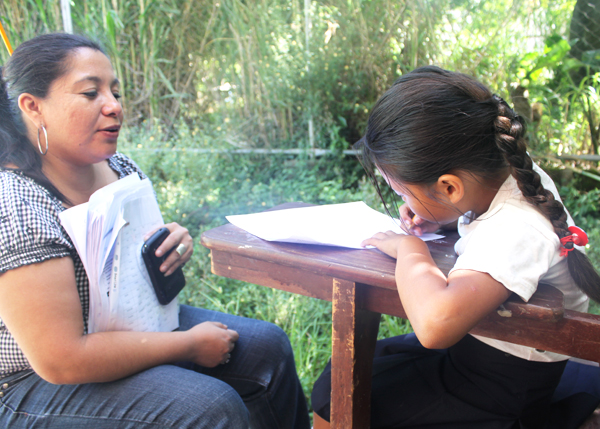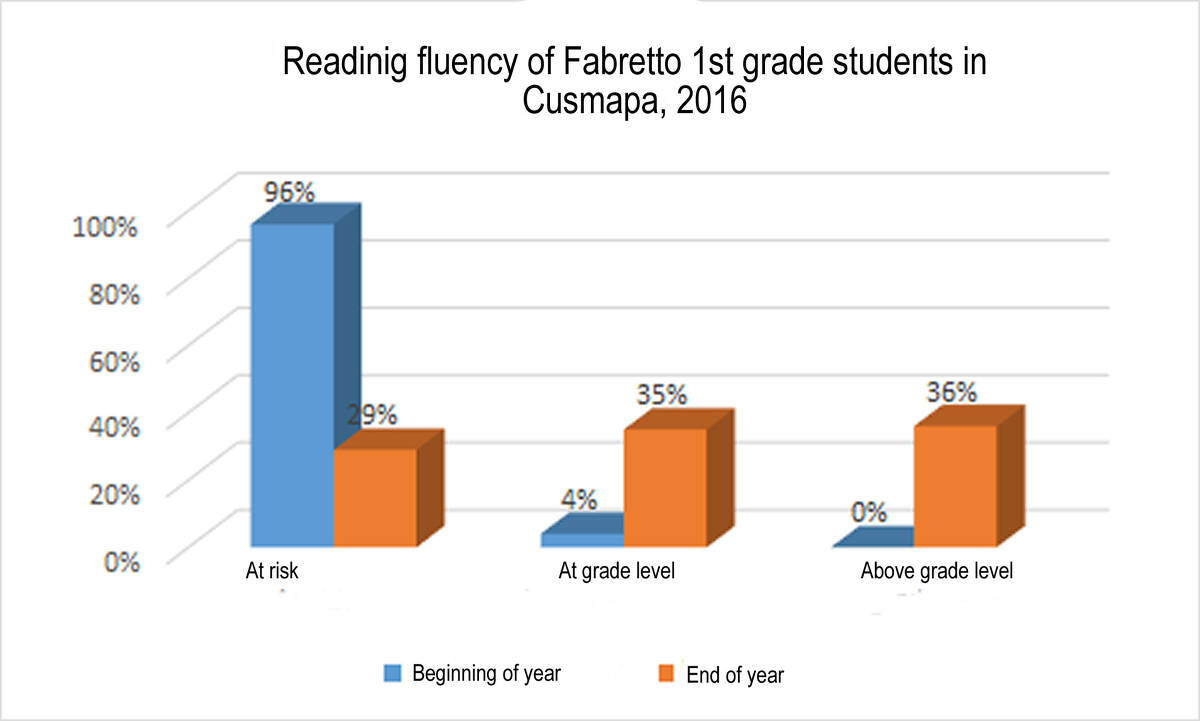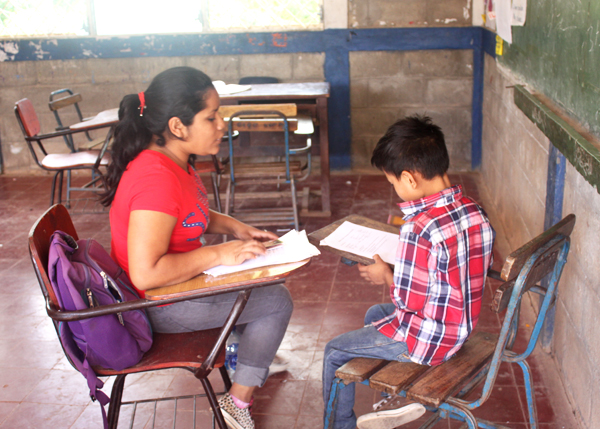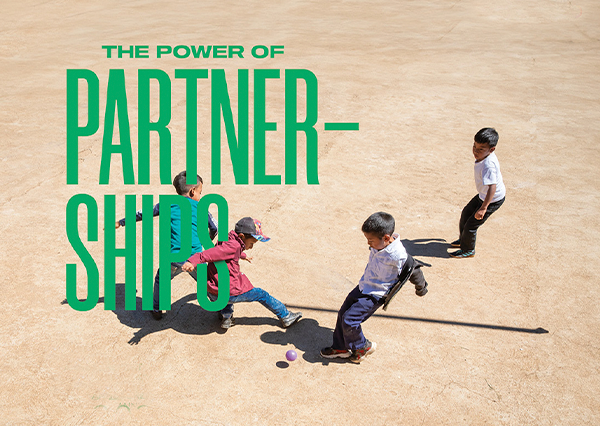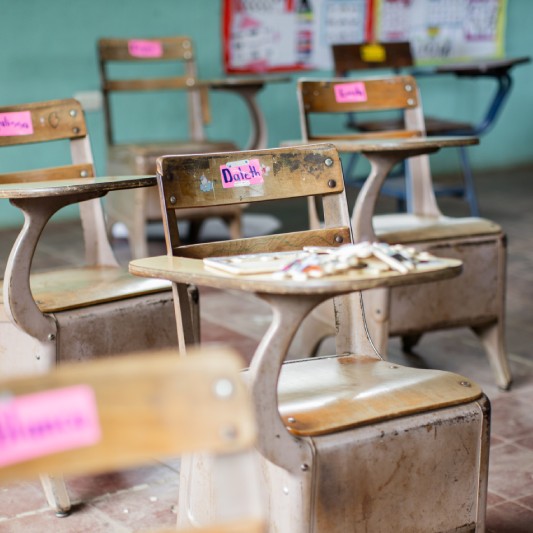11-4-16 | Our Programs Program Achievements
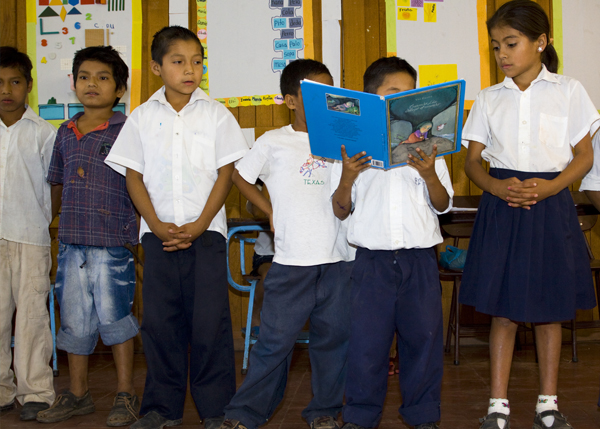
Early literacy development is the foundation of learning. Children who master reading skills in the first few grades of primary school are prepared to succeed in school, and they are more likely to continue through secondary school and to secure gainful employment later in life. But too often, with few resources at their disposal, Nicaraguan children in underserved communities do not develop foundational reading skills before grade 3.
Fabretto’s programs provide children with the support they need to develop key competencies in reading and writing. While most Nicaraguan students only attend school for four hours a day, Fabretto’s after-school enrichment classes provide extra learning time with trained teachers and quality learning resources, to ensure that students master basic literacy skills.
How do we know that children are learning?
Fabretto is committed to providing quality education programs that make a real difference in children’s lives. To ensure that our approaches are helping children learn, we administer the Early Grade Reading Assessment, or EGRA, a tool for assessing early literacy.
EGRA was developed by RTI International the assessment has been implemented by governments and NGOs in over 40 countries.* Each iteration of EGRA is carefully tailored to the country context and language.
To administer EGRA, a trained evaluator visits a Fabretto classroom and works with each child one-on-one, guiding him or her through timed activities, such as reading words, reading a story, and writing sentences. Although the process is relatively simple, EGRA gathers an enormous amount of information about students’ reading, fluency, comprehension, and writing skills.
What have we learned from EGRA data?
First, EGRA shows that the children in the communities we serve begin school at a disadvantage. Many of our students lack the “pre-literacy” skills, such as knowing what a letter or a word is, expected of children who are entering the first grade. This is no surprise–with limited access to preschool and few resources at home, many children have had no access to books and other learning materials until their first day of primary school.
In Cusmapa, for example, 96% of first graders were classified as “at risk” in reading fluency and comprehension at the beginning of the 2016 school year.** Many of these children could not read a single word. This type of data points to the deep need for quality educational support in vulnerable communities.
Children take the EGRA at the beginning and end of the school year. In October 2016, Fabretto began the process of administering the end of school year assessments. At the moment, we only have a sample of the data, but analysis of initial results have shown increases over the course of the year that children spend in Fabretto’s education programs. For example, this chart shows the change in reading fluency observed in 1st grade students from Cusmapa:
By the end of the year, 71% of Fabretto first grade students in Cusmapa demonstrated reading fluency at or above grade level–a 67 percentage point difference from the baseline, where only 4% read at grade level (note that “grade level” is determined by international standards for Spanish language reading skills). That said, 29% of first graders in Cusmapa are still below the expected level and in need of extra support from Fabretto next year.
EGRA data also reveals areas where Fabretto can strengthen its focus. For example, even by the end of the year, very few first graders could answer an inferential question about the text during the reading comprehension segment. Our students also struggled with spelling and punctuation in the writing segment. These are challenges that Fabretto’s Programs Team will address through adjustments to teacher training and enrichment class curriculum in the future.
What’s next?
Fabretto’s programs also work to strengthen children’s early numeracy skills to promote the development of competencies in mathematics. To assess student learning, we have introduced the EGMA, or Early Grade Math Assessment, beginning with students in the 2nd and 3rd grades.
The data provided by EGRA and EGMA helps Fabretto to better understand community needs and for continuous improvement and evaluation of programs, with the goal of helping all students to reach their full potential. A full report of the results from the 2017 assessments will be released by the end of the year.
If you would like to support Fabretto’s primary education programs, please click here.
*USAID/EdData II, https://www.eddataglobal.org/reading/
**A sample of 166 children in Cusmapa were assessed at baseline and endline.


